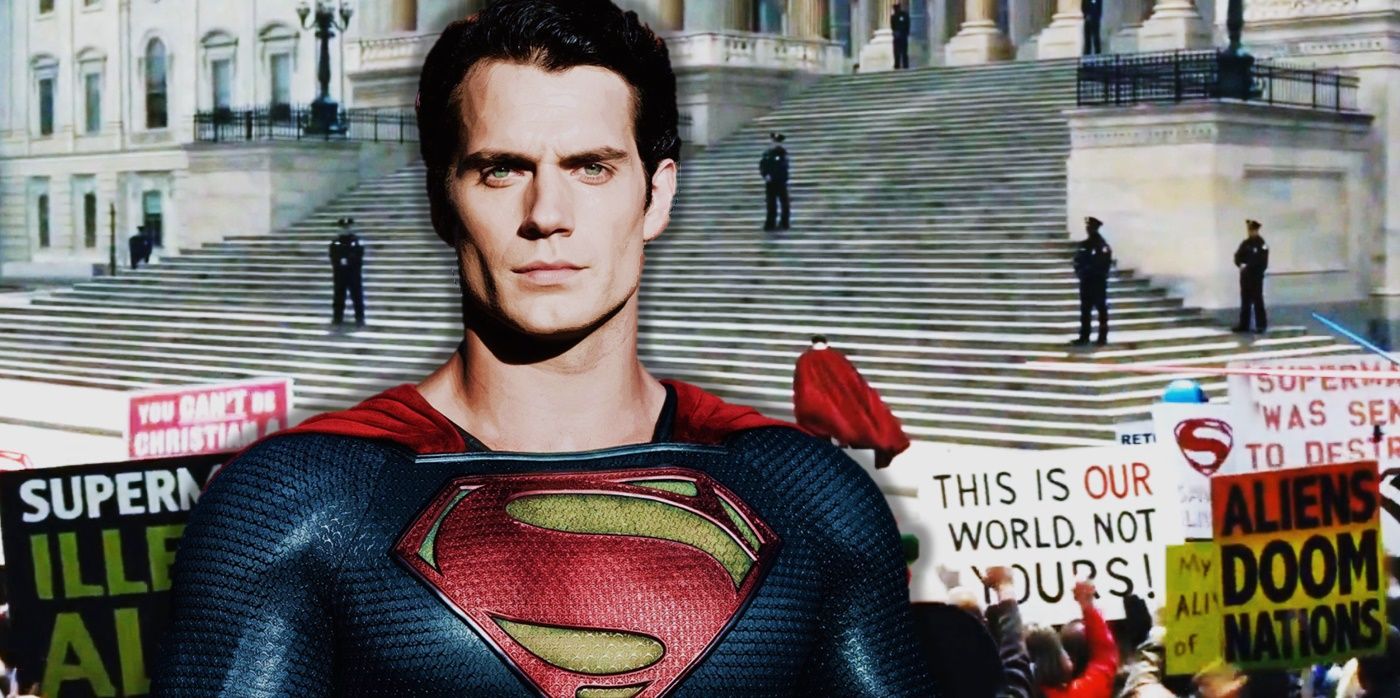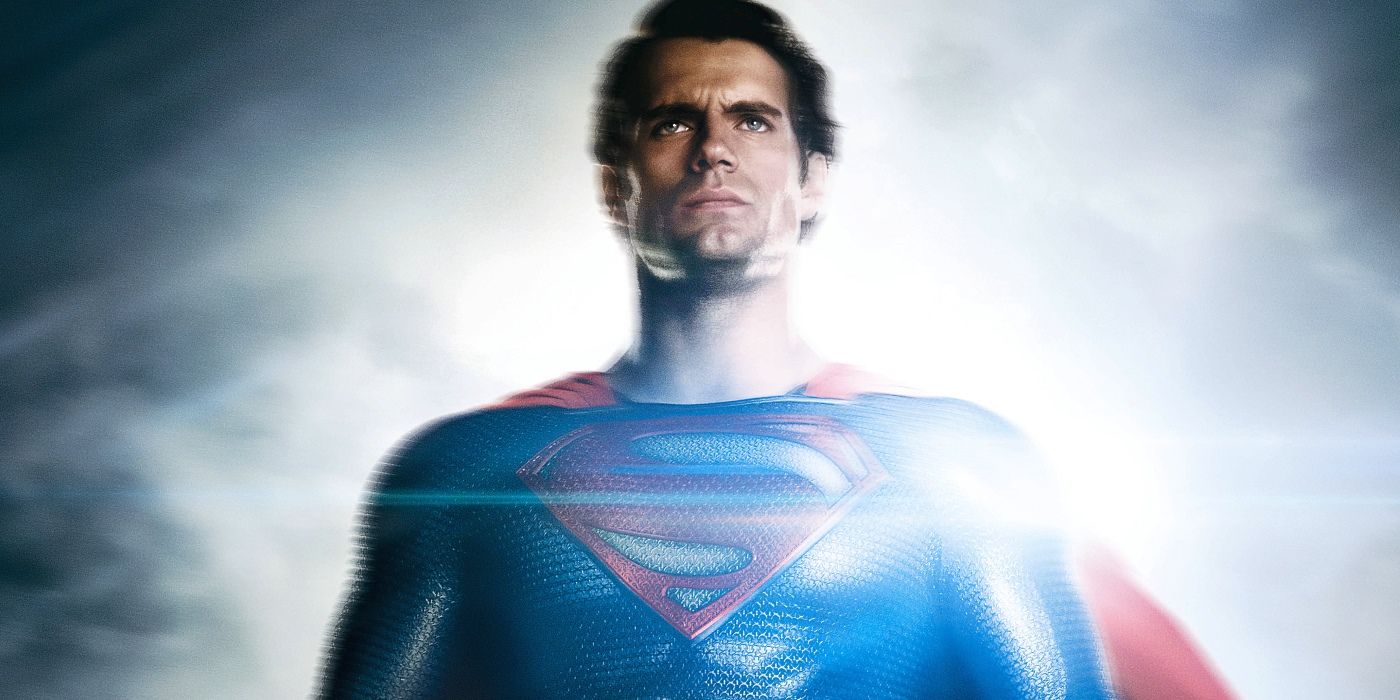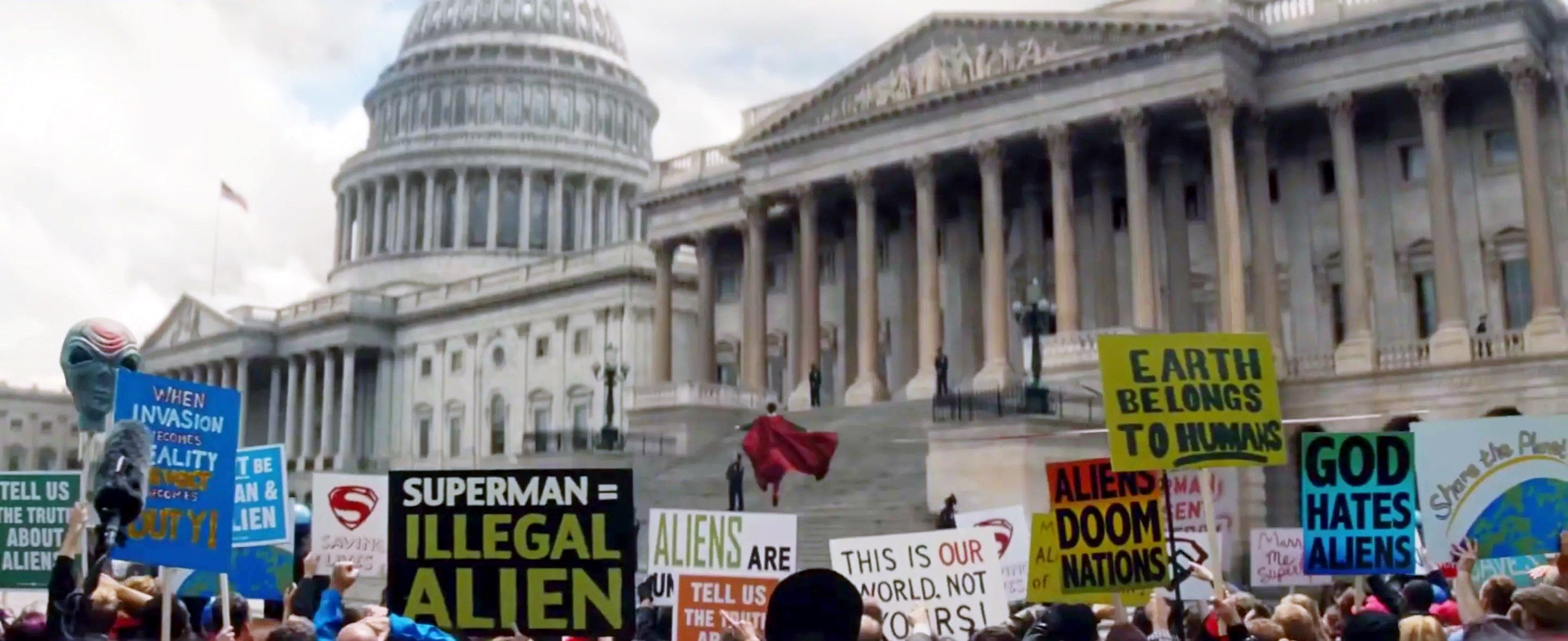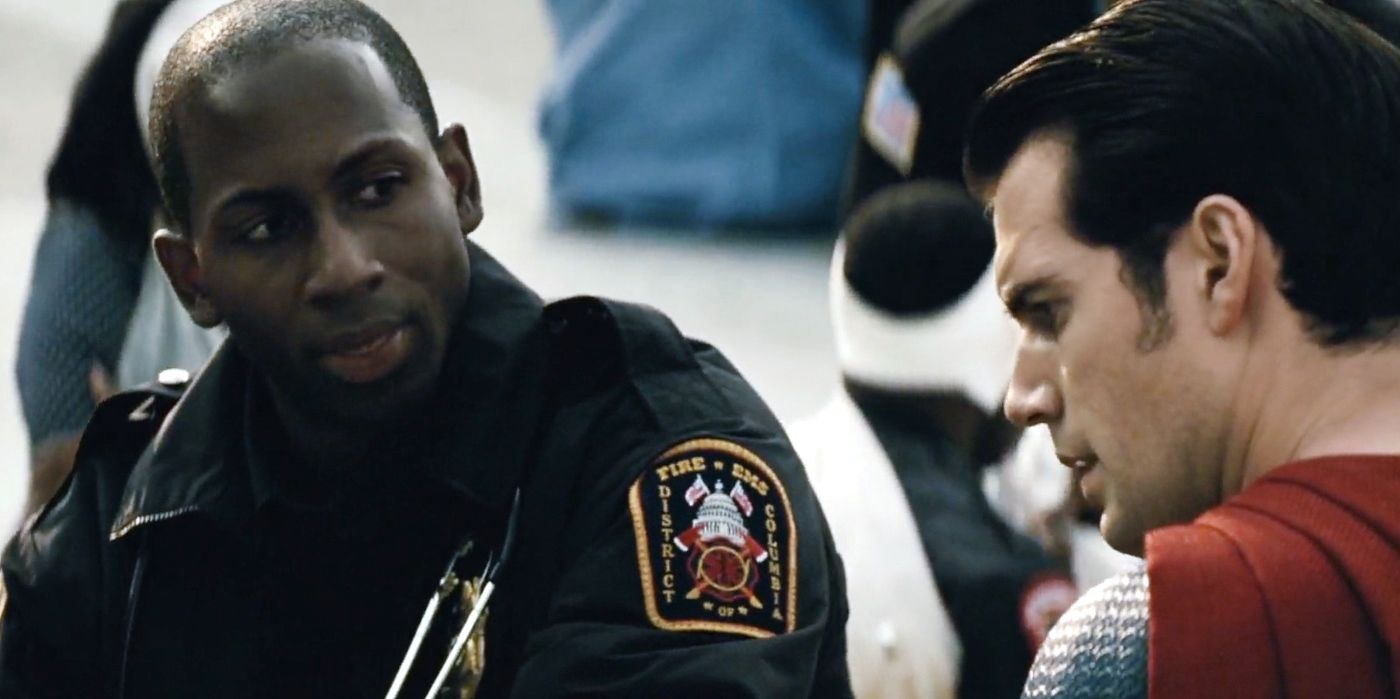When it first hit theaters, many derided Batman V Superman as a movie that, in casting off optimism or 'hope,' ended up speaking to no one, standing for nothing, and even desecrated the virtues of beloved American ideals. Batman became an unbelievable, radical caricature of extremism, where Superman was seen as a figure of controversy when his inherent American boy scout integrity should invite none. Yet fast-forward sixteen months, and one has to wonder: if the film were released into theaters today, would the story of a billionaire speaking fascist absolutes, and an America convinced that a well-meaning "alien" poses a threat to national security be evaluated differently?
The DCEU's version of Superman may have gotten slaughtered by critics as too dark, too harsh, and too broken-spirited. But the world he calls home has proven that's a more accurate depiction of the immigrant and minority experience in America than most cared to admit. When the 2016 'Brexit' vote and American presidential election shocked the world, we explained why the DCEU was suddenly more relevant than ever. In recent months, the perceptions of the social, racial, religious, and political landscapes in America have changed so dramatically, it's hard to see the themes and indictments of what is surely DC's most controversial film as anything but prophetic.
With that in mind, we're taking a closer look at the film to see if it really did release a year too early to be appreciated fully. Especially now that Zack Snyder's vision of xenophobia, political extremism, and reconciliation in modern America seems more relevant than ever. In addition to this exploration of Superman's narrative reflecting that of modern minorities - and Muslims in particular - we'll also be covering the other title hero, and how foes became friends in the following articles:
- What DCEU's Batman Says About Modern America
- The DCEU Batman & Superman Are The Heroes America Needs
There's sure to be those unwilling to reconsider their stance or interpretation, and the film may never be what comic book fans in search of technicolor spectacle and thrills are seeking, but perhaps the world has changed (or revealed itself) enough to warrant a second look at Batman V Superman. After all, Dawn of Justice doesn't just show society's struggles through DC's two biggest heroes - it also shows how we find our way back to the light.
The World Doesn't Hate Who Superman is, Simply What He is
By now most agree that Superman is, if not the immigrant story, at least an immigrant story. More specifically, an immigrant ideal: that a foreign refugee could come to America and be embraced as a child of its own heartland, while still claiming and being defined by their ancestral traditions. It's a romantic idea that's persisted as Krypton's mythology has expanded since Superman's creation, and one that Snyder sought to inspect with Man of Steel (like Christopher Nolan had with a modern Batman tale). Instead of an immigrant ideal, the DCEU Superman would endure the modern challenges of the immigrant experience. Not just any immigrant, either: an immigrant unfortunate enough to share a nationality, ethnicity, or religion with factions suddenly seen as an enemy, or threat to American's security.
To be clear, this is by no means a uniquely American phenomenon. But as an American hero whose story unfolds in America, and is opposed by American interests, America is the lens through which Snyder tells his story. It's a story in which Superman must choose his own identity. Will he embrace the optimism of his mother, believing that he can take pride in the "beautiful" truth of who and what he is? Or should he heed the wisdom of his father, and fear that people will see the signs of his 'Other-ness" (let alone his pride in them) as things to fear, mistrust, or even hate? In the end Man of Steel sees Superman trust in America and the world at large. He embraces the hope and optimism, trusting that for all the reasons people might have to fear him, his actions can and will speak louder. He believes that in the end, who he is will matter far more than what he is.
It's a hopeful note... but one that gave people far too much credit.
In the end, Batman V Superman showed that people in the DCEU do the same thing as people anywhere: some see through xenophobia and their feeling of "powerlessness... that turns good men cruel," as others unite in suspicion and hate. Not just hate of something different, but hate of a thing so foreign claiming to be "as American as it gets" - and claiming Earth as its 'people.' Others from Superman's homeland had made threats, killed thousands by launching an attack on the heart of America's greatest metropolis, and shown that American security had been an illusion.
Regardless of the facts, the time that passed prior to BvS saw xenophobia, racism, and protectionism take root and blossom. When protestors of the DCEU took to the U.S. Capitol Building to communicate this naked xenophobia, oblivious to the facts (facts knowable only to the viewers granted Superman's perspective), the scene was taken by many as hyperbolic to the point of eye rolling. In fact, the idea that people would not just fear or mistrust, but openly hate Superman for not being human despite his heroism was criticized as cynical... as cynical as the rest of Snyder's story.
The scene reads differently today, as the highest figures of America's government have suggested, such hate is at least valid, if not the 'right' stance. America and the United Kingdom have, in recent weeks and months, been forced to realize that these signs are now carried by more than the fringe, supporting beliefs held by people that might not openly identify as fringe. Ignorant of the facts or motivations of those being targeted, the slogans sound the same: "Outsiders doom our nations. They don't belong here. This is our home, not theirs. God is with us... and against them."
The audience knows Superman is in the right, and his opponents in the wrong, at least morally, but the obligation is still upon him (them) to face his accusers and plead his innocence. Yet as clear as this 'Us vs. Them' idea may be, Snyder doesn't seem to be drawing a parallel to one specific racial or ideological divide. When Superman is at his lowest point (after the Capitol bombing has drawn a bloody line between him and humanity) it's worth noting that the film's 'Ultimate Cut' sees Superman awkwardly interact with a paramedic on the scene. That paramedic - the onscreen representative of Americans, Humanity, Earth, Us - happens to be a person of color, and not a white face by 'default'.
It's prejudice as a human trait, as much as it is an American one being examined by Snyder. And it may appear, at first glance, that Snyder is framing the average American citizen, or the average person as the enemy - a cynical, pessimistic stance if there ever was one. But the film stops well short of making villains, or even antagonists of everyday people pursuing the safety of their loved ones and their constituents. No, the antagonism that drives the story only exists because people have been manipulated by those working to construct these common enemies, allowing the real villains to remain hidden.
That isn't letting the bystanders off the hook, by any means. But the true villains of the DCEU's America and world nations are thrown into sharp relief with help from its version of the Dark Knight. Peace and acceptance may be all that Superman, like most immigrants-- like most people want. But before it can be reached, he must deal with the same enemies, prejudiced opponents, and malevolent manipulators as his real-world counterparts. And to understand that, fans have to start with Batman.




